Filter by
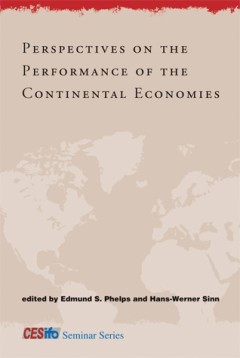
Perspectives on the Performance of the Continental Economies
Economists disagree on what ails the economies of continental western Europe, which are widely perceived to be underperforming in terms of productivity and other metrics. Is it some deficiency in their economic system—in economic institutions or cultural attitudes? Is it some effect of their welfare systems of social insurance and assistance? Or are these systems healthy enough but weighed do…
- Edition
- -
- ISBN/ISSN
- 9780262295413
- Collation
- 1 online resource (vi, 500 pages) :illustrations.
- Series Title
- -
- Call Number
- -
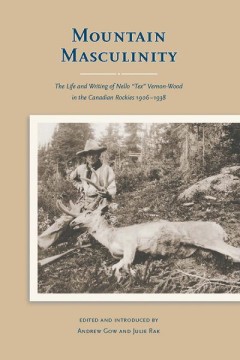
Mountain Masculinity the Life and Writing of Nello “Tex” Vernon-Wood in …
In 1906, Nello Vernon-Wood (1882–1978) reinvented himself as Tex Wood, Banff hunting guide and writer of “yarns of the wilderness by a competent outdoorsman.” His homespun stories of a vanishing era, in such periodicals as The Sportsman, Hunting and Fishing, and the Canadian Alpine Journal, have much to tell us about the west as envisioned by those who wanted to leave the industrialized w…
- Edition
- Andrew Gow and Julie Rak
- ISBN/ISSN
- 9781897425022.01
- Collation
- -
- Series Title
- -
- Call Number
- 237 pages

Year 1 :a philosophical recounting
"A reconsideration of the first century, before there were chronological centuries, and how it troubles our contemporary boundaries between religion, philosophy, and law"--OCLC-licensed vendor bibliographic record.
- Edition
- -
- ISBN/ISSN
- 0262363542
- Collation
- 1 online resource.
- Series Title
- -
- Call Number
- -

Islamic science and the making of the European Renaissance
"The Islamic scientific tradition has been described many times in accounts of Islamic civilization and in general histories of science, with most authors tracing its beginnings to the appropriation of ideas from other ancient civilizations - the Greeks in particular. In this thought-provoking and original book, George Saliba argues that, contrary to the generally accepted view, the foundations…
- Edition
- -
- ISBN/ISSN
- 9780262282888
- Collation
- 1 online resource (xi, 315 pages) :illustrations.
- Series Title
- -
- Call Number
- -
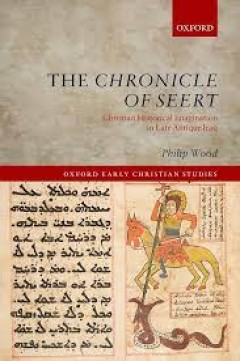
The Chronicle of Seert: Christian Historical Imagination in Late Antique Iraq
This book is a study of the cultural and political history of Christian Iraq, the Church of the East, the so–called ‘Nestorians’. This history is seen through the Chronicle of Seert, a medieval Arabic Chronicle that reuses sources written several centuries earlier. This monograph aims to isolate different layers of composition and looks for trends in the choice of material and the agenda …
- Edition
- -
- ISBN/ISSN
- 2013
- Collation
- -
- Series Title
- -
- Call Number
- -
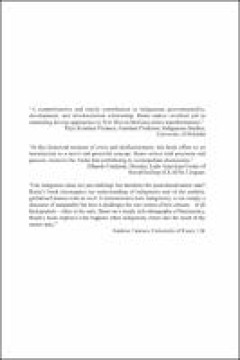
Vivir Bien as an Alternative to Neoliberal Globalization
Presenting an ethnographic account of the emergence and application of critical political alternatives in the Global South, this book analyses the opportunities and challenges of decolonizing and transforming a modern, hierarchical and globally-immersed nation-state on the basis of indigenous terminologies. Alternative development paradigms that represent values including justice, pluralism, de…
- Edition
- -
- ISBN/ISSN
- 9781351719353
- Collation
- -
- Series Title
- -
- Call Number
- -

A Guide to the Windows of King's College Chapel, Cambridge
M. R. James (1862–1936) is probably best remembered as a writer of chilling ghost stories, but he was an outstanding scholar of medieval literature and palaeography, who served both as Provost of King's College, Cambridge, and as Director of the Fitzwilliam Museum, and many of his stories reflect his academic background. His detailed descriptive catalogues of manuscripts owned by colleges, ca…
- Edition
- -
- ISBN/ISSN
- 9780511710551
- Collation
- -
- Series Title
- Cambridge Library Collection - Cambridge
- Call Number
- -
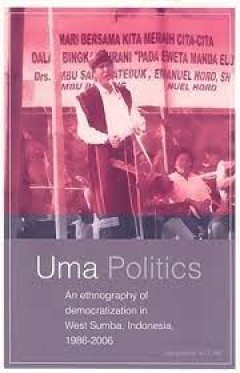
Uma politics; An ethnography of democratization in West Sumba, Indonesia, 198…
Democracy cannot be implemented overnight. Democratization is an often unpredictable process. This book concentrates on that political transformation in one of Indonesia’s most ‘traditional’ islands, Sumba. Why does democratization create such great opportunities for local politicians with their private agenda’s? Why does regional autonomy, as part of the national democratization progra…
- Edition
- -
- ISBN/ISSN
- 9789004253926
- Collation
- -
- Series Title
- -
- Call Number
- -
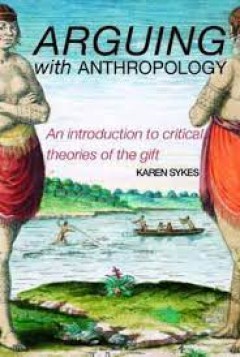
Arguing With Anthropology
Arguing with Anthropology is a fresh and wholly original guide to key elements in anthropology, which teaches the ability to think, write and argue critically. Using the classic 'question of the gift' as a master-issue for discussion, and drawing on a rich variety of Pacific and global ethnography, it provides a unique course in methods, aims, knowledge, and understanding. The book's highly ori…
- Edition
- -
- ISBN/ISSN
- 9781134523450
- Collation
- -
- Series Title
- -
- Call Number
- -
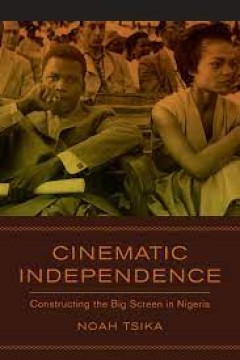
Cinematic Independence Constructing the Big Screen in Nigeria
Cinematic Independence traces the emergence, demise, and rebirth of big-screen film exhibition in Nigeria. Film companies flocked to Nigeria in the years following independence, beginning a long history of interventions by Hollywood and corporate America. The 1980s and 1990s saw a shuttering of cinemas, which were almost entirely replaced by television and direct-to-video movies. However, after…
- Edition
- -
- ISBN/ISSN
- 9780520386105
- Collation
- -
- Series Title
- -
- Call Number
- -
 Computer Science, Information & General Works
Computer Science, Information & General Works  Philosophy & Psychology
Philosophy & Psychology  Religion
Religion  Social Sciences
Social Sciences  Language
Language  Pure Science
Pure Science  Applied Sciences
Applied Sciences  Art & Recreation
Art & Recreation  Literature
Literature  History & Geography
History & Geography